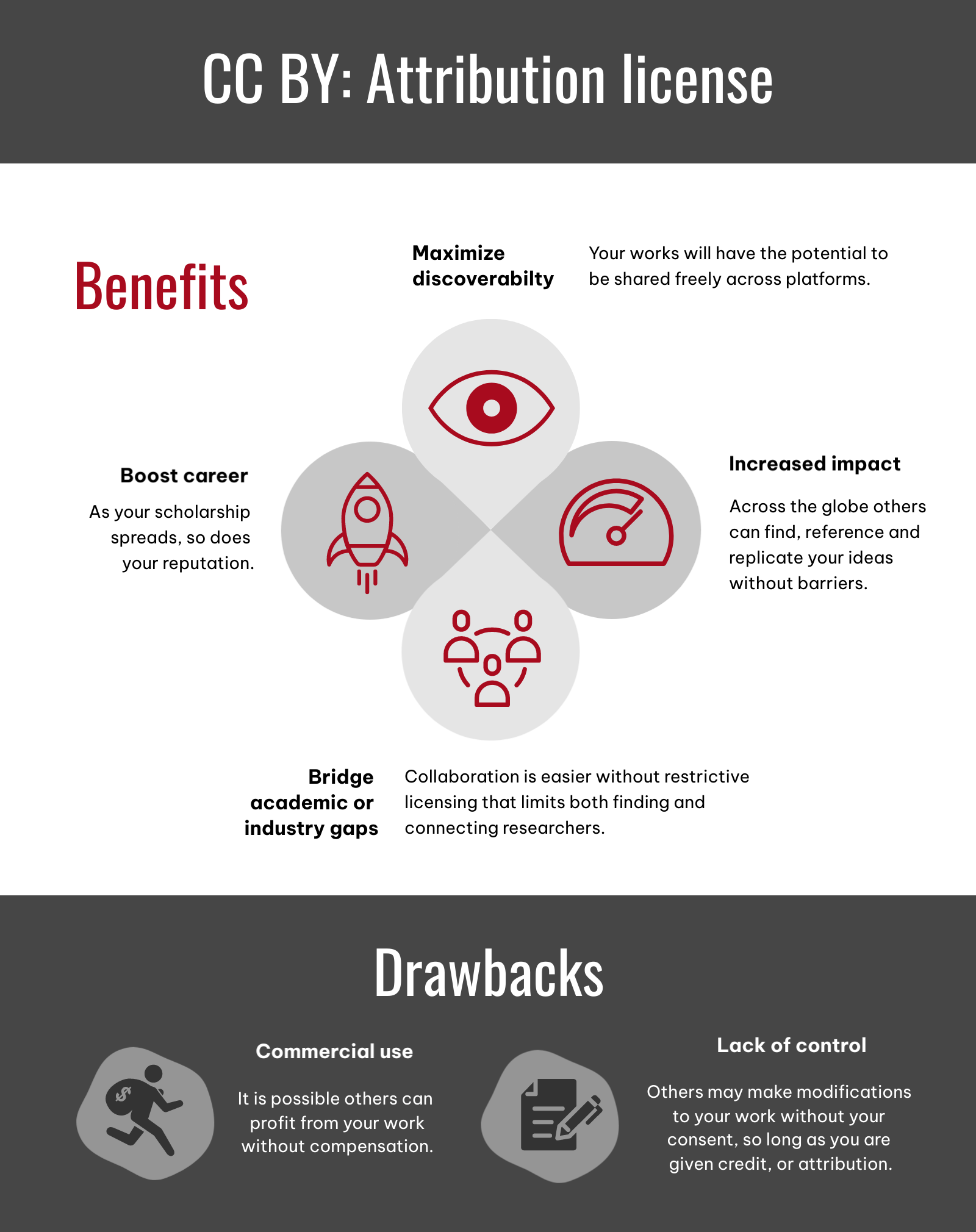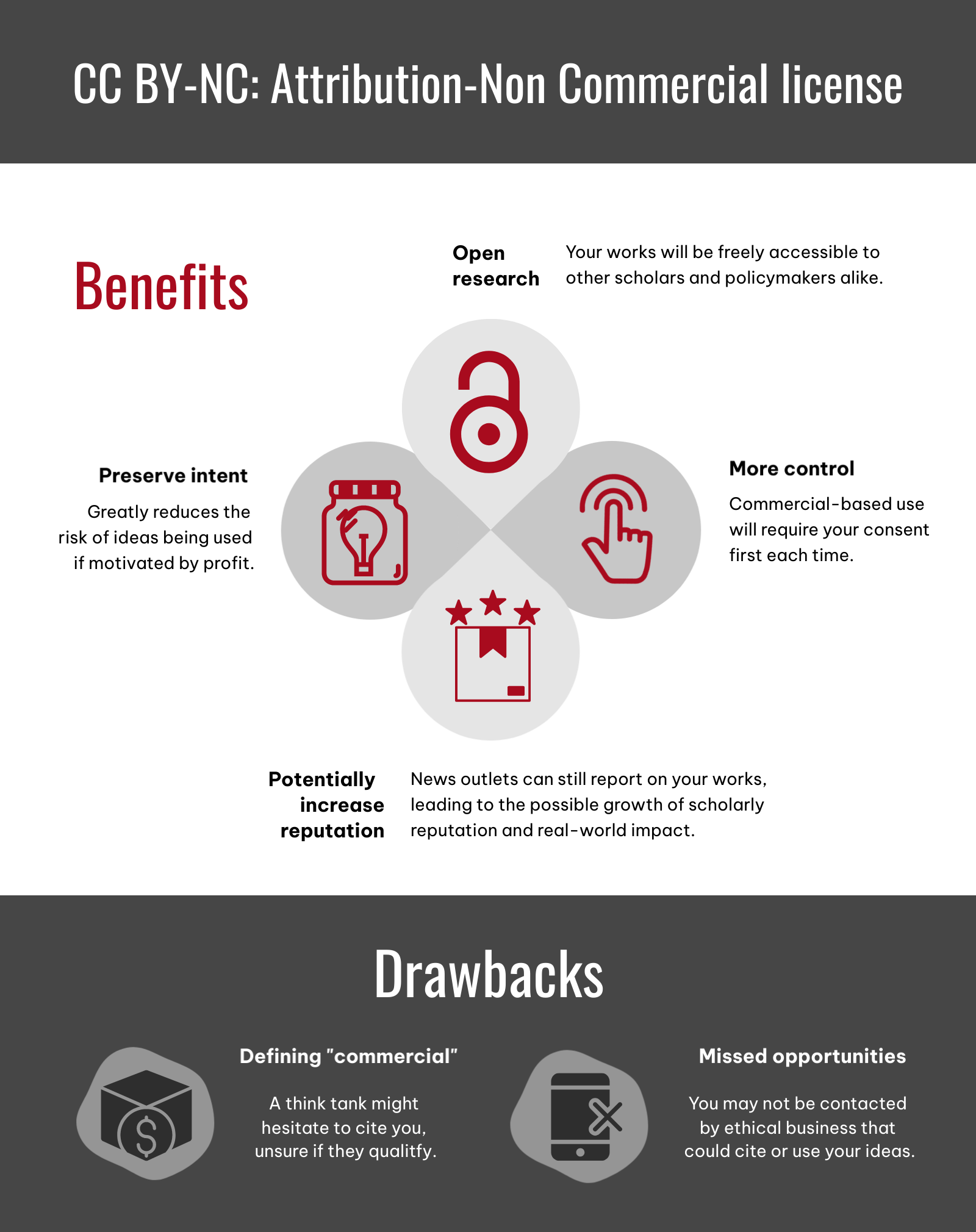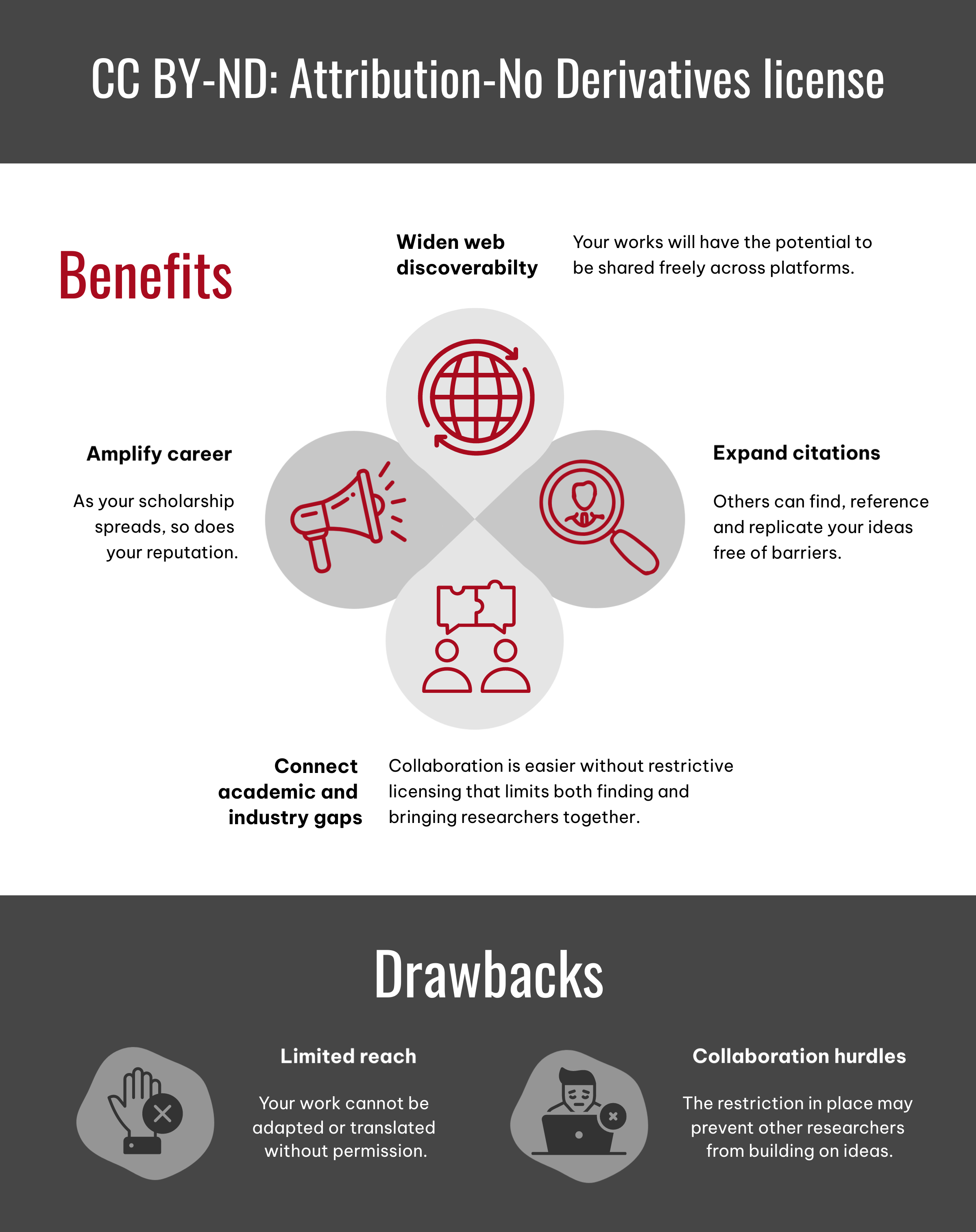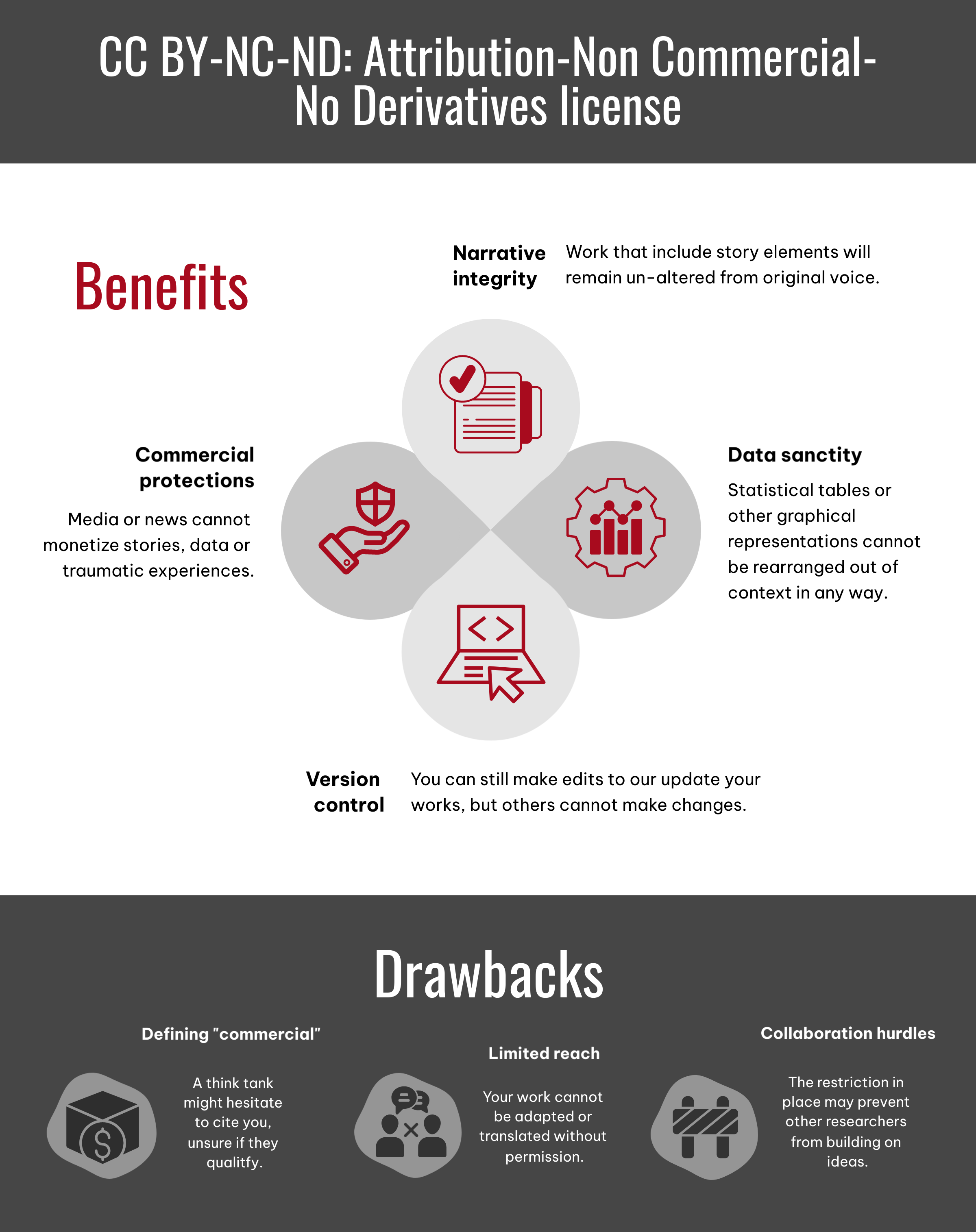Author's Rights & Copyright Guidance
Authors are encouraged to anticipate their future needs and to retain the rights they need in order to optimize dissemination of their research.
Author's Rights
When your article is reviewed and accepted for publication, you are often asked to sign a standard agreement that transfers most, if not all of your rights to the publisher. This means that you are no longer the copyright holder for your work. Depending on your contract with the publisher, your attempts to share your own work with colleagues and students, in print or electronic formats, may be infringing.
You as the author have the following rights unless and until you transfer the copyright in a signed agreement:
- The exclusive rights of reproduction
- Distribution
- Public performance
- Public display
- Modification of the original work
At the point of agreement negotiation, you may need to negotiate to retain your rights. The Scholarly Publishing and Academic Resources Coalition (SPARC) has created a guide and contract addendum to assist authors in rights retention.
Copyright Guidance
When you submit your article for OA publication, you are asked to choose a Creative Commons reuse license. Creative Commons (CC) licenses are a way for creators to encourage broad dissemination of their work by indicating to readers that the work can be reused and by specifying the conditions for that reuse. CC licenses work within copyright law—they are not a replacement. To grant a CC license to a work, you must hold the copyright to it.
A benefit of using a Creative Commons license is that you do not need to personally grant permission each time someone wants to reuse your work. As long as users follow the license terms and give proper credit, they can use it without contacting you.
It is generally recommended that an author choose the least restrictive license possible, CC-BY. Choosing CC-BY-NC-ND with some publishers may inadvertently grant them an exclusive right to profit from your OA article. Please read your publishing agreements carefully! If publishing with Wiley or Elsevier, please consult this article before selecting your license.
About CC Licenses
CC BY
Either the original work or a derivative work can be shared, with appropriate attribution, for commercial or noncommercial purposes. This the most open of the licenses, permitting the broadest sharing and reuse.
CC BY-NC
Either the original work or a derivative work can be shared with appropriate attribution, but only for noncommercial purposes.
CC BY-ND
The original work can be shared with appropriate attribution, for commercial or non-commercial purposes. If someone creates a derivative work, like a translation, the license does not permit them to share that derivative work.
CC BY-NC-ND
The original work can be shared with appropriate attribution, but only for noncommercial purposes. No derivative works can be shared.




